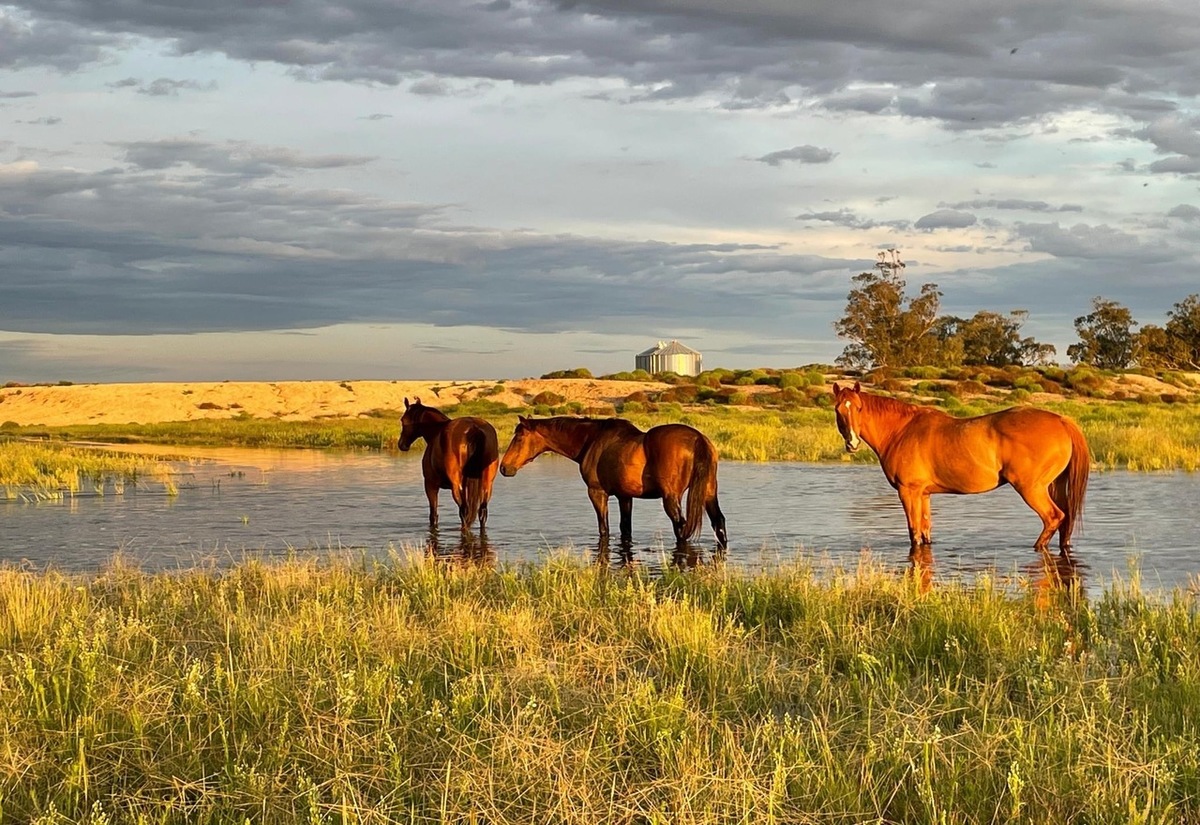Mozzies make a home out west
Laura Williams
03 December 2021, 6:07 AM
 Horses standing in the floodwater of a Coonamble property in an attempt to get relief from mosquitoes.
Horses standing in the floodwater of a Coonamble property in an attempt to get relief from mosquitoes. Local mosquito populations have exploded with the recent rainfall and floods creating the perfect breeding conditions for the insects.
University of Sydney Entomologist Dr Cameron Webb said that as a result, we can expect some of the biggest mosquito populations we’ve seen in years.
“The more water you get, the more mosquitoes you get. As the weather warms up we’re also expecting mosquitoes to be increasing over the coming weeks as we head towards the summer holidays,” Dr Webb said.
These days, protecting yourself is cheap and easy with shelves full of supermarket products.
Before store-bought products, however, Dr Webb said that Indigenous Australians used the natural scents of Australia to protect themselves from the blood-feeding insects.
“We know that strong smelling plant material can also repel mosquitoes so the extracts of things like tea-tree plants are commonly used in repellents today. If you were to crush up the leaves of some of these native plants and rub them on your skin, that would probably keep the mosquitoes away for a little while,” Dr Webb said.
Although it’s not well documented, there are also reports in coastal communities of people using mud on the skin to interrupt the biting mosquitoes.
While the mozzies may be out in full swing, a recent CSIRO breakthrough could support the suppression and potential eradication of invasive mosquitoes carrying diseases like dengue fever.
CSIRO Chief Executive Dr Larry Marshall said that the breakthrough could be significant in preventing biosecurity threats.
“Over 40 per cent of humans suffer from mosquito-spread diseases, so it’s an opportunity for Australia to develop environmentally-friendly mosquito control tools to tackle current and future mosquito incursions,” Dr Marshall said.
The new approach sterilises male insects making them unable to breed, a cost-effective method for climates of less developed countries that suffer the most from mosquito-borne viruses.
The trial saw over 80 per cent of the mosquito population suppressed across three trial sites along the coast in North Queensland.
Dr Webb said that although mosquitoes carrying Dengue aren’t so present in Western NSW other serious conditions, such as Ross River and Barma Forest Virus certainly are - and the new technique could be used to curb their biting behaviours.
“This technology means that we may not have to eradicate mosquitoes, we can just change them in a way that they don’t bite us or they don’t spread the pathogens that make us sick,” he said.
The lack of information around their role in the food chain in the environment means that the complete eradication of mosquitoes isn’t a viable option, as popular as it may be.
Perhaps however, Dr Webb said, using technology to turn mosquitoes vegetarian might be the next best option.